New Delhi: On OPD duty, Dr Balaji Jaganathan at Kalaignar Government Hospital in Chennai was busy meeting patients and writing prescriptions. During an otherwise busy morning, Jaganathan had a brief moment alone in his cabin. That’s when a 26-year-old man barged into his room, bolted the door from inside and started attacking him with a kitchen knife.
“There was a lot of blood in the cabin, I heard Dr. Jaganathan scream for help. The staff ran to his aid. The man wanted to cut his throat but he failed as Jaganathan fought him, but he had deep cuts on his shoulder, ear, scalp and face,” said Dr Antan Uresh Kumar, a kidney transplant surgeon, who was present in the hospital when the attack took place.
The man was angry about his mother’s treatment by Dr Jaganathan. The patient had stage-4 ovarian cancer and developed side effects after chemotherapy at the government hospital.
Jaganathan was admitted to the ICU and surgery was performed. “He is stable now but the mental trauma he and other staff have experienced won’t fade away easily,” said Kumar.
From Chennai to Indore and Jharkhand to Delhi, India is increasingly witnessing horrifying tales of attacks on its healthcare professionals, particularly doctors. Twenty-six states have laws that make the offence non-bailable but the medical community is not satisfied and wants the Narendra Modi government to urgently pass a long pending overarching central legislation that promises them complete safety. The government’s apathy toward healthcare infrastructure and medicine supply also comes heavily on the doctors who are often at the forefront of dealing with the kin of patients.
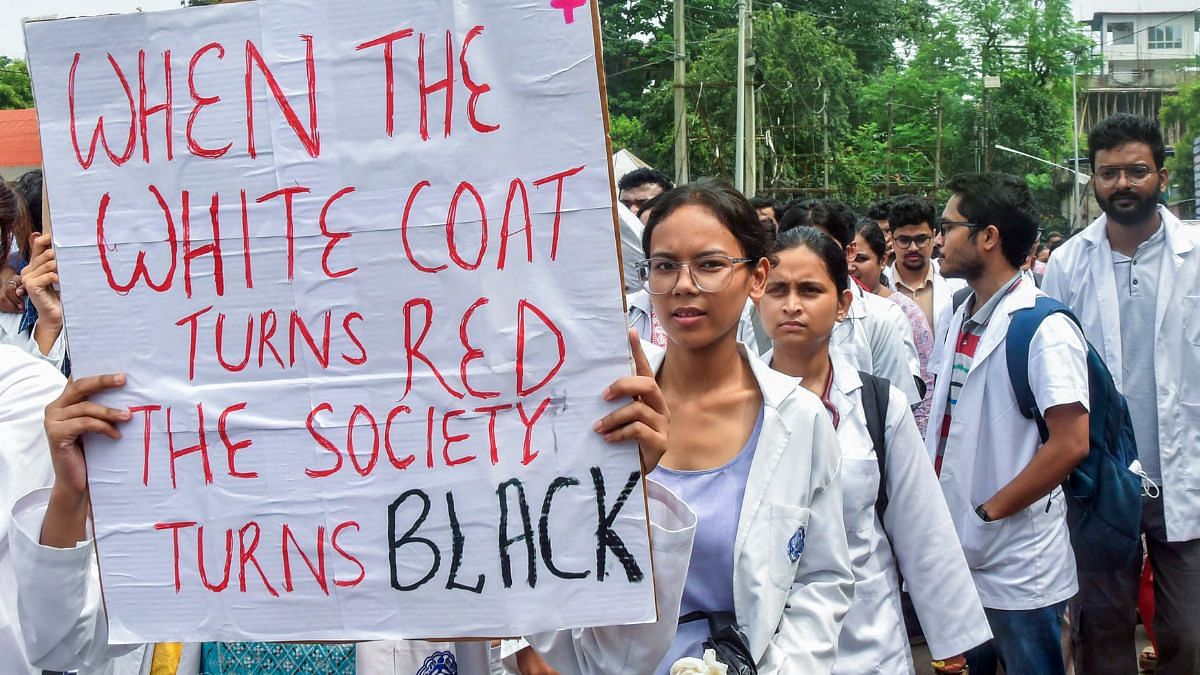
“Statistics show that over 75 per cent of doctors across the country have faced at least some form of violence and that 68.33 per cent of the violence was committed by the patient’s attendants/escorts. These are an underestimate as all cases of violence are not reported,” read the IMA report from 2021.
The effects of such violent episodes extend longer than the experience itself, the report added, as “most doctors report having faced insomnia, depression, anxiety, and an inability to see their patients without any fear of violence.”
Doctors in Chennai’s Kalaignar Hospital are protesting and asking for security measures such as round-the-clock police deployment. The hospital was built only last year but the CCTVs were not functional. And security staff, said hospital staff/doctors, are not useful.
“After the Kolkata rape case, doctors have been demanding a central law guaranteeing protection to them but no one is listening and such cases are rising every day,” said Dr Indranil Deshmukh, National Convener, Indian Medical Association.
What triggers the attacks
A Delhi doctor who was visiting his hometown in Dhanbad and was beaten badly by a patient’s attendant at JIMS, where his father works, said there is no fear of the law among people when it comes to attacking medics.
“The police personnel were scared for their lives, they were unarmed. The existing law doesn’t scare people. We need stricter laws for doctor’s safety,” said Dr Singh, narrating his ordeal.
A patient died during a surgery that Singh’s father was performing. When he heard about it, he went to meet his father, and that’s when the patient’s attendant attacked him.
“I felt like I wouldn’t leave there alive. I got beaten by five people in front of the police. My clothes were ripped and they kept hitting me. The police hasn’t taken any action so far,” said Dr Singh, who works at Delhi’s Batra hospital.
In the viral video of the Dhanbad incident, policemen can be seen trying to stop the attack, but in vain.
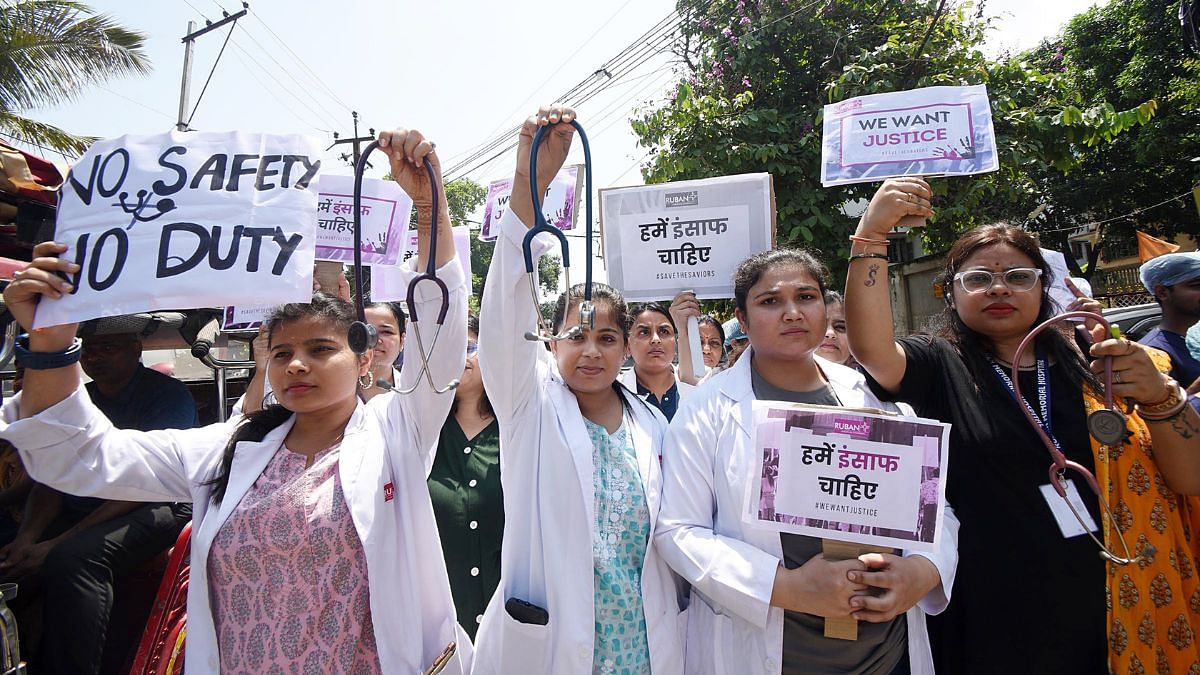
There are various reasons behind the attacks on medics. Almost all of them are motivated by emotions that run high when the health of the patient deteriorates. And even when there are multiple factors that go into deciding how a patient is being treated or why their health deteriorates—many are beyond the control of doctors—it’s always doctors or nurses who are blamed and attacked.
“In most cases, the threats and attacks come from the attendants, who want us to prioritise their patients. But often, hospitals are so overburdened that we don’t have enough beds or doctors. In such situations, attendants get angry. In government hospitals, we sometimes have two patients sharing one bed. A doctor cannot compromise the health of one patient for another,” said Dr Dhruv Chauhan, Health Activist and member of IMA.
In many cases, the attendants do not understand the technicalities involved in the treatment and get provoked by the slightest signs of discomfort visible in the patients.
In the Chennai hospital, a side effect became the cause of friction before it led to the knife attack.
“She was having fibrosis of lung, which is a very common side effect of chemotherapy and when he (the attacker) took his mother to the private hospital and she started feeling better, he thought the government hospital did not treat her mother well,” said Dr Antan Uresh added.
However, reports say that the patient was also critical of the doctor’s behaviour.
“The doctor ill-treated us and he used to talk to us in English,” said the mother to police. She underwent six chemotherapy sessions at the government hospital.
A second-year resident in Indore’s Mahatma Gandhi Memorial Medical College was beaten by five attendants while on a 30-hour-long shift. He continued his shift even after this horrifying incident.
“I am used to this. People come and treat us badly; it is happening all over the country. I think it’s part of our job now. This shouldn’t be happening with people who save lives and give life to people. I was just doing my job,” said Dr Shwetank Soni, the resident in the pediatric department.
Dr Soni was in the ward when a patient came complaining of a high fever. Because all beds were occupied, he made the patient share a bed with another. The attendants did not like this, they took the patient away and came with iron rods and belts in their hands and started beating the doctor.
“There was not much security, a female guard was there who was badly injured. There were female attendants as well who attacked. I could not do anything else in this case. There were not enough beds,” he added.
The 2021 IMA report said that in most cases, attacks are done by the patients’ attendants. From medicine to bed availability to the bad condition of the patients, they blame everything on the doctors.
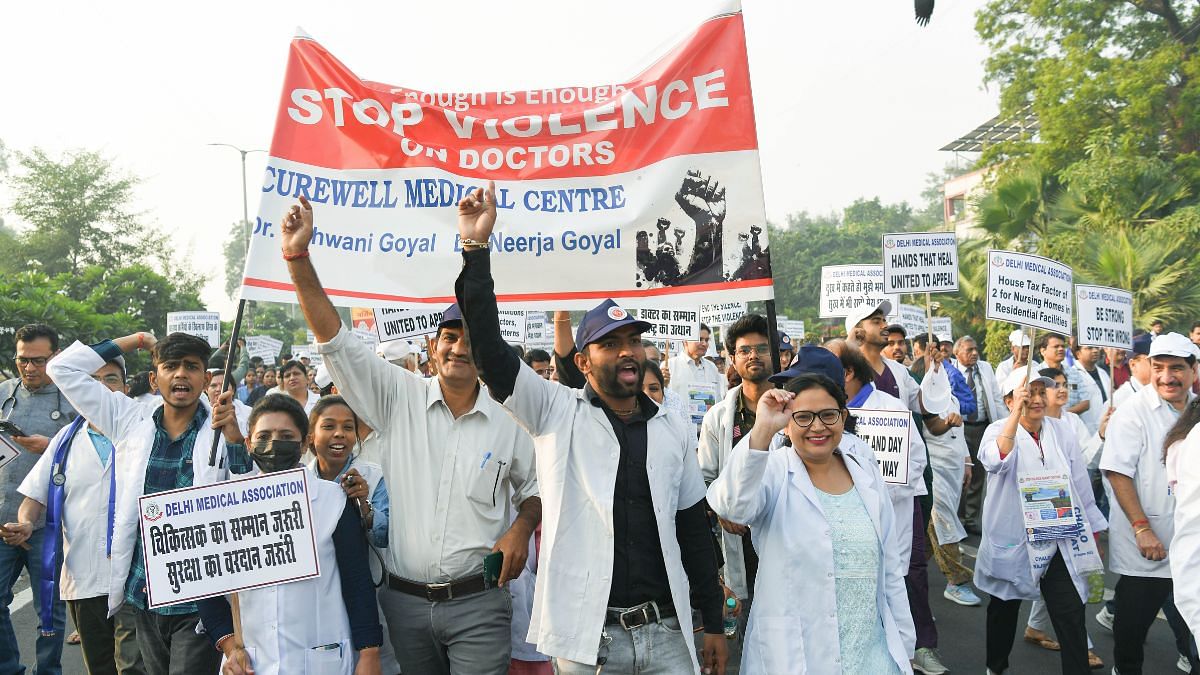
“If certain medicine is not available in the hospital. People will blame the doctors. Doctors have nothing to do with that. Even if a patient’s condition gets worse naturally, it is the doctor who is blamed. The government has to fix this,” said Dr Dhruv Chauhan.
Also read: Distrust of Indian doctors isn’t new. Class-caste bias always ruled medical profession
Call for central legislation
The twenty-six-year-old who attacked Dr Jaganathan at the Chennai hospital had the doctor’s blood all over his face. He shouted as he was arrested and warned he would do it again.
“The mentality of people is that even the police don’t scare them. He was being arrested and saying that he would come out and do it again,” said Dr Antan Uresh.
Many states have their individual laws to protect doctors yet doctors all over the country are demanding central legislation with longer prison sentences and heftier fines.
The Central Healthcare Protection Bill was drafted in 2019. Between January 2018 and September 2019, at least 56 incidents against healthcare professionals were reported.
“I was already scared after the Kolkata rape. It shocked the entire medical community and such cases are a reminder for me that the job I wanted, the job that was my dream, is not as noble as I thought. We save everyone we could but no one is saving us,” said Dr Ritu, who works as a junior resident at Delhi’s Sanjay Gandhi Hospital.
The demand for the central law is long overdue. In 2023, Shashi Tharoor raised the issue in Parliament.
“Around 26 states have laws on this issue that make the crime (of attacking health workers) non-bailable but still the problem continues. We need to ensure that hospitals are not permeable by random people and adequate security personnel and functional CCTV should be there,” said a source in the health ministry.
Kerala has the most stringent punishment for grievous injury to a doctor in India, with a maximum of seven years in prison.
As per National Medical Commission guidelines, CCTV cameras, trained security and female guards across the premises, emergency control rooms, and emergency alarm bells are some of the measures hospitals must have.
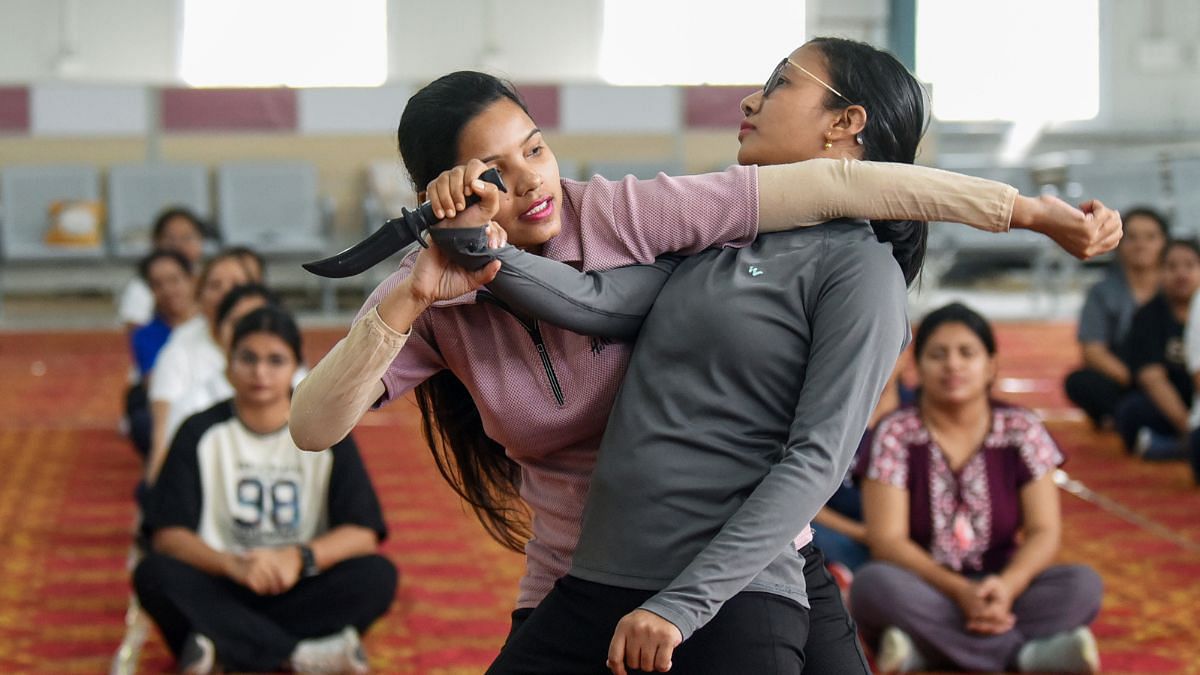
The draft Central Healthcare Protection Bill was rejected after consulting with the home ministry in 2020. It was found that many provisions that were mentioned in the bill were already there in the penal code. And hence, there was no urgency seen in this legislation.
“They [home ministry] said that there was not sufficient stakeholder consultation and there was a concern over federal structure but when such an incident happens the need of strict punishment is needed the most,” said Dr Sharad Singh, who works in AIIMS Delhi.
The doctors’ associations are of the view that strict penalties and the non-bailable status of the offence can play a big part in reducing these incidents.
“The Act can bring a uniform legal framework across India, providing standardised protections regardless of state laws. The stringent penalties and non-bailable status of offenses create a strong deterrent against violence, encouraging safer conditions in healthcare settings. By enhancing safety for healthcare workers, the Bill will indirectly support better healthcare delivery, as doctors and staff will feel more secure,” said Dr Indranil Deshmukh, National Convener, Indian Medical Association.
“The government’s stand does not discourage us and we will continue our struggle for a Central law for health care professionals,” added Deshmukh.
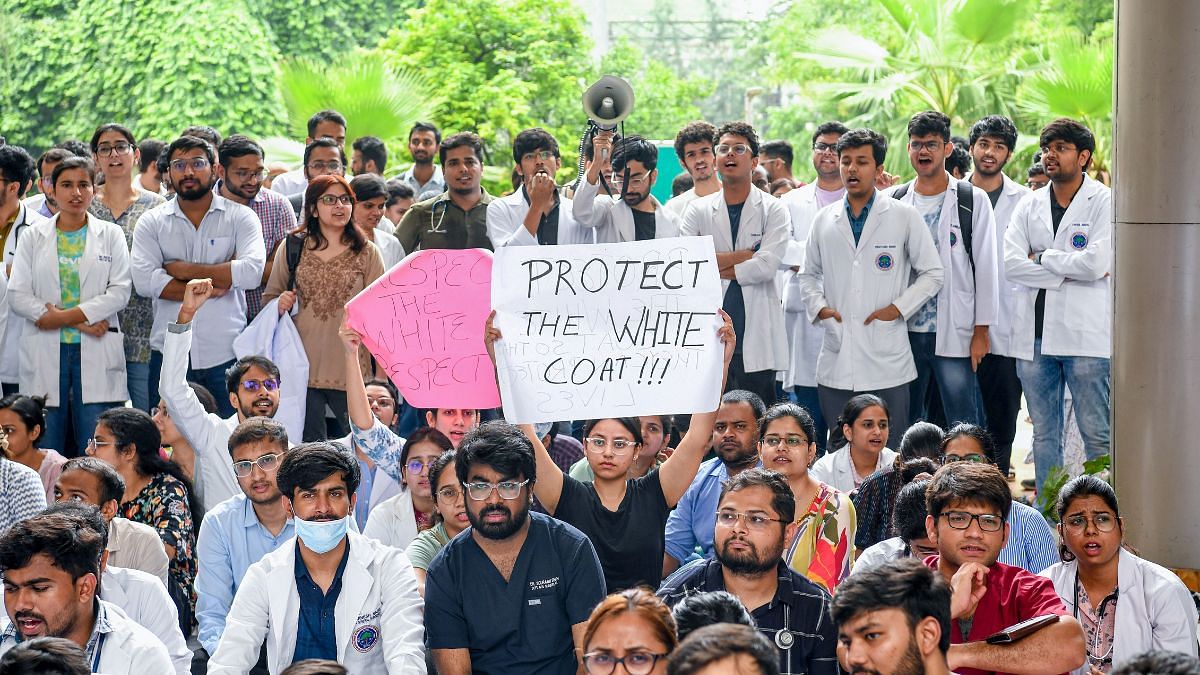
The Tamil Nadu government has decided to launch a set of measures to ensure doctors’ safety in hospitals across the state — joint inspections by the police and health department officials, installing metal detectors and distributing colour-coded wristbands to control the visitors.
But doctors aren’t impressed. They said such attacks happen in rural areas and in state capitals as well.
“In August, a doctor was attacked by a patient and his attendant while he was treating them. The security staff and the metal detector were of no help; it was other staff members who proved to be some help. Someone can bring a gun into the hospital and shoot us. Nothing can stop it from happening because the existing law doesn’t scare people,” said a junior resident in Delhi’s GTB hospital.
(Edited by Anurag Chaubey)



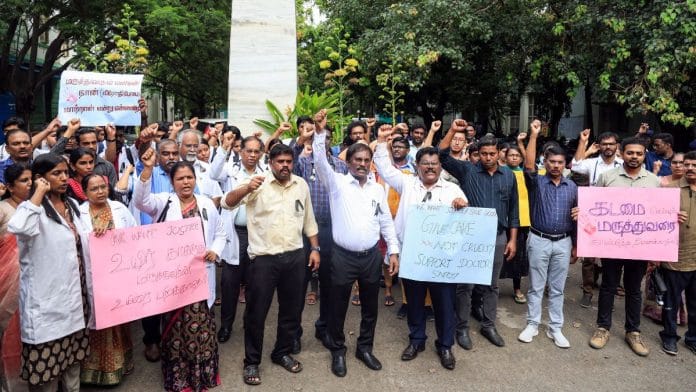



There is a communication issue between doctors and patients. No law can prevent these, unless doctors communicate properly to patients. Do you think the patient or their relatives/friends who do these attacks actually will get deterred. Press would be better served, if they look at the other side of the coin and administrators in all hospitals bring out medical counsellors for patients and their relatives to understand the treatment, side effects – both the prognosis and the diagnosis.